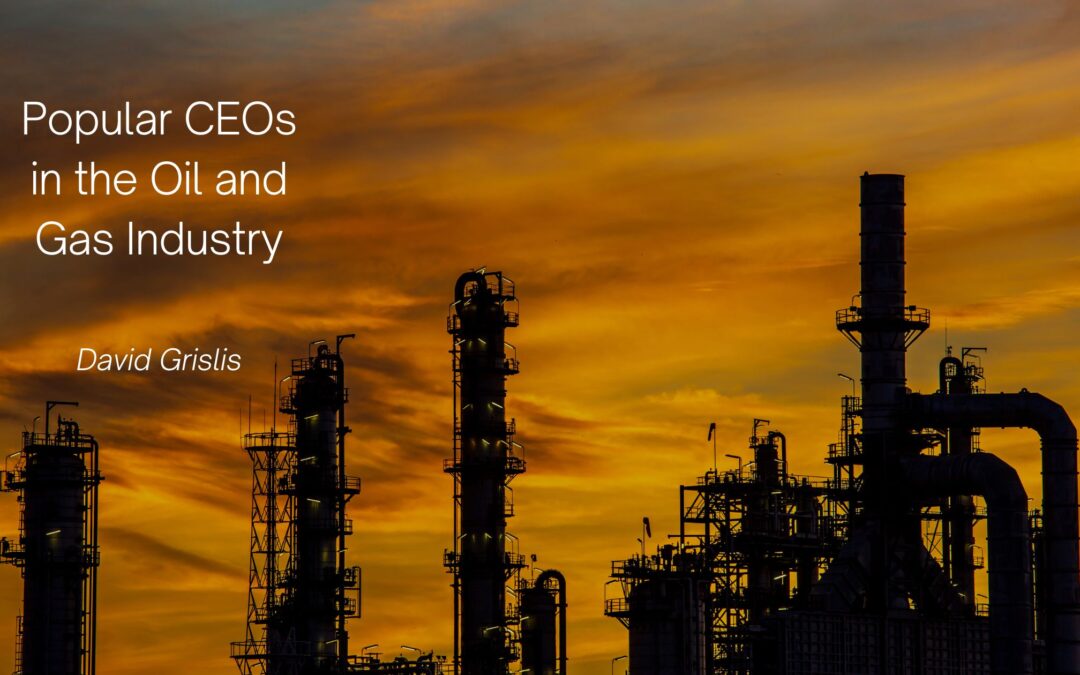The oil and gas industry, a cornerstone of the global energy market, has been steered by influential leaders whose decisions affect economies, geopolitics, and the environment. These CEOs manage vast enterprises and navigate complexities from geopolitical tensions to environmental concerns. Their leadership shapes the direction of energy policies, technological advancements, and sustainability efforts.
The oil and gas sector, often under public scrutiny, is a testament to engineering marvels, financial juggernauts, and challenging logistics. Leading these mammoth corporations are CEOs who bear enormous responsibility. Their decisions impact shareholders and ripple through economies, affecting everything from pump prices to international relations. The industry’s history boasts legendary figures, and the current era is no different. As the world grapples with the dual challenges of meeting energy demands and addressing climate change, these CEOs are at the forefront of innovation, strategy, and controversy.
Rex Tillerson
Rex Tillerson, the former CEO of ExxonMobil, helmed the company from 2006 to 2016. Under his leadership, ExxonMobil reinforced its position as one of the world’s largest publicly traded oil and gas companies. Tillerson championed bold strategies, focusing on deepwater exploration and navigating political intricacies in countries like Russia. His tenure wasn’t without challenges. Exxon faced criticisms regarding environmental practices and climate change concerns. Tillerson, an engineer by training, emphasized Exxon’s commitment to scientific research and technological advancement. His tenure saw investments in alternative energy, albeit dwarfed by its oil and gas ventures. Post ExxonMobil, Tillerson briefly served as U.S. Secretary of State, underscoring the often close ties between energy giants and geopolitics.
Bob Dudley
Bob Dudley, the former Group Chief Executive of BP (British Petroleum), occupied the role from 2010 to 2019. Dudley’s ascendancy followed the Deepwater Horizon disaster, one of the largest environmental mishaps in U.S. history. He navigated the company through legal battles, public relations nightmares, and daunting financial liabilities. Dudley implemented stringent safety protocols, streamlined operations, and restructured the company, emphasizing transparency and responsibility. Internationally, he diversified BP’s portfolio, investing in regions like Africa and the Caspian Sea. His leadership marked a period of recovery, resilience, and reformation for BP.
Amin H. Nasser’s tenure is synonymous with modernizing efforts in the traditionally secretive state-owned giant. Under his leadership, Aramco opened itself to international investors, culminating in 2019 with the world’s largest Initial Public Offering (IPO). Nasser has overseen significant technological collaborations, research initiatives, and global partnerships. He emphasizes sustainability, positioning Aramco at the vanguard of cleaner fuel technologies and carbon capture research. Balancing the interests of Aramco’s vast stakeholder base, from the Saudi monarchy to global investors, Nasser’s leadership exemplifies adaptability in a rapidly changing energy landscape.
The oil and gas industry, vital yet controversial, is defined by its leaders’ visions. CEOs like Tillerson, Dudley, and Nasser navigate many challenges, from global politics to environmental repercussions. Their decisions shape the trajectory of an industry central to our modern world.
